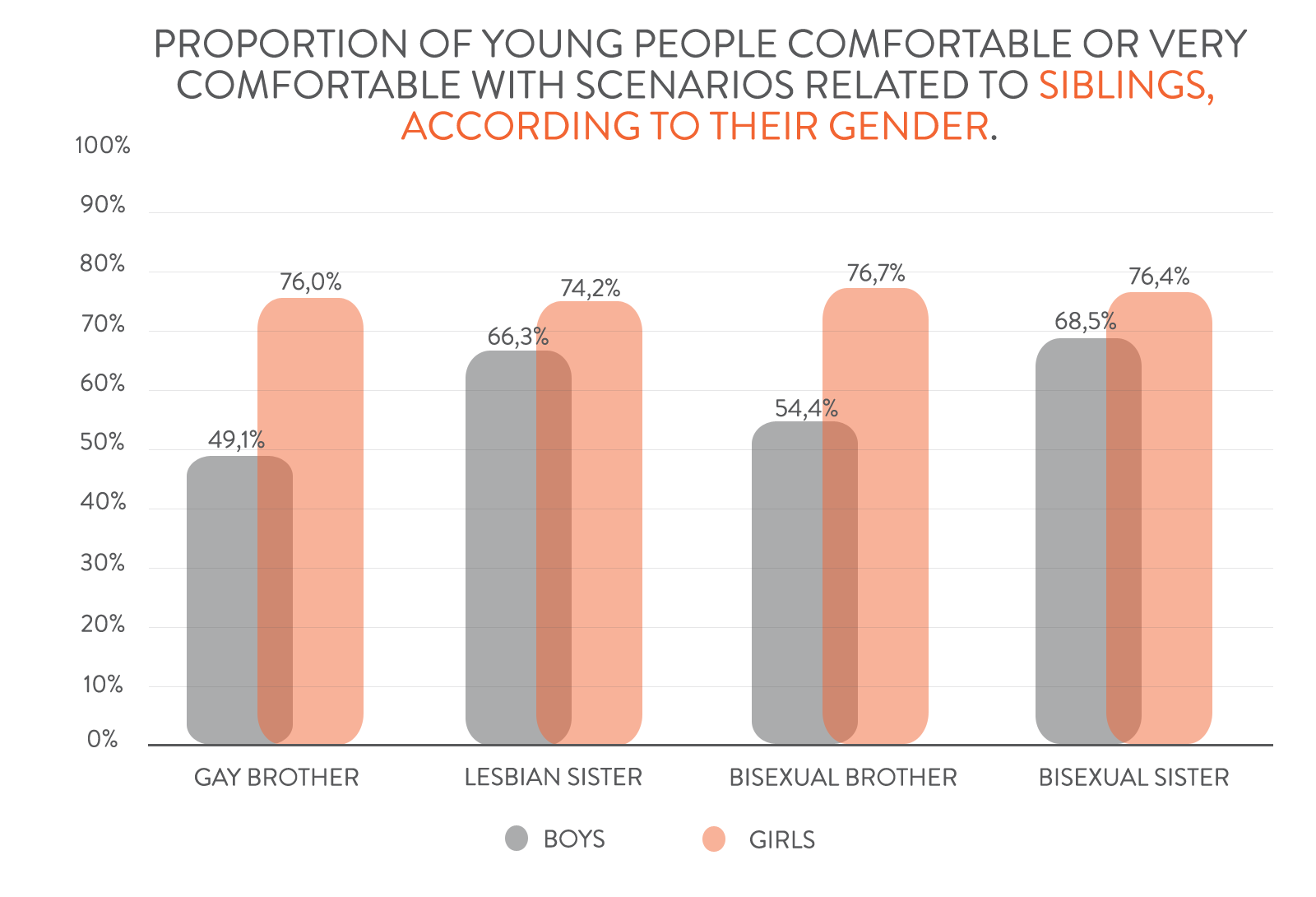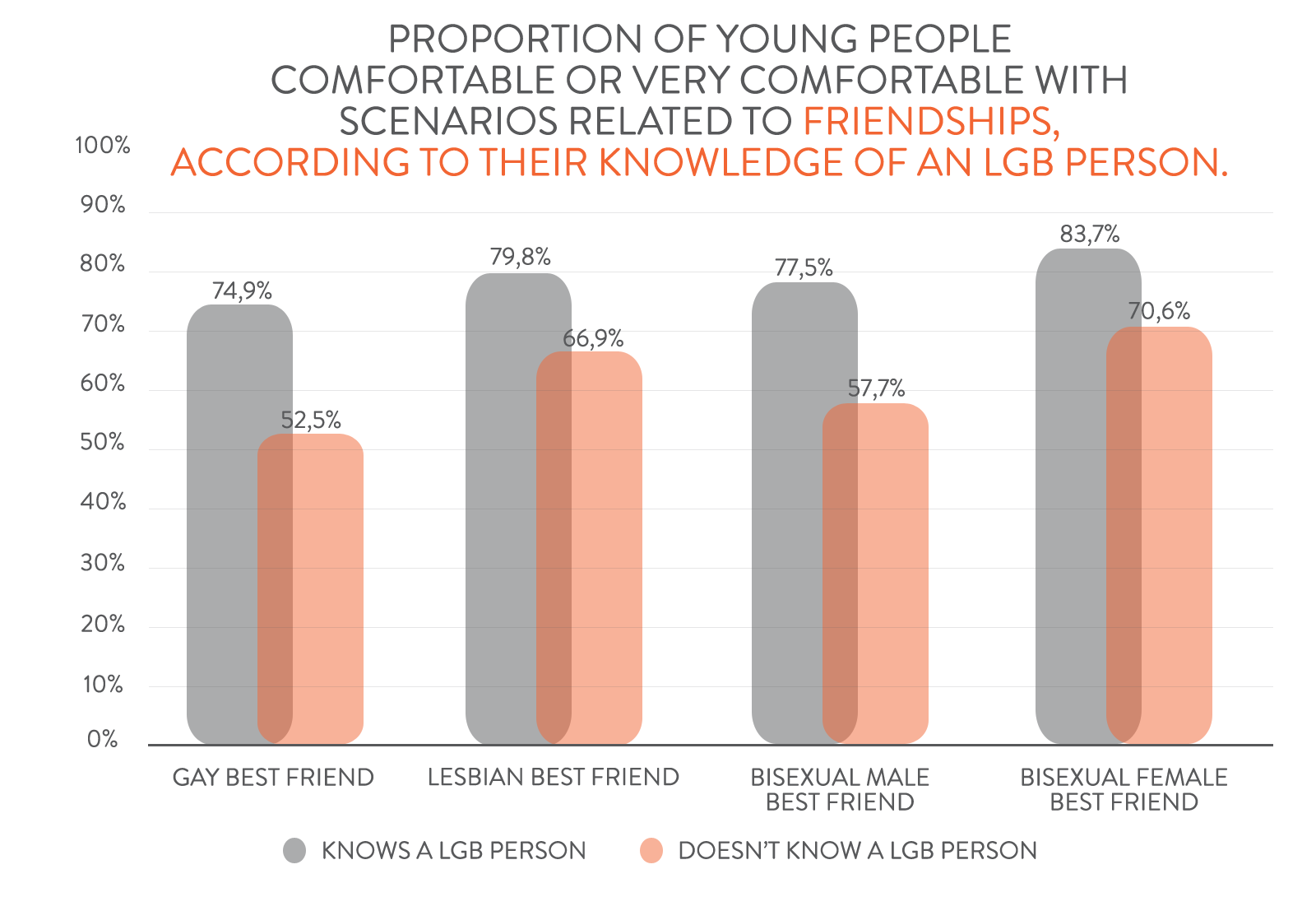1
Who are our workshops aimed at?

Secondary
schools

Primary
schools

Cégeps
universities

Youth settings

Adult settings

Senior settings
GRIS-Montréal’s workshops are given in the form of testimony by a question-and-answer session with two volunteers who identify as either gay, lesbian, bisexual, pansexual, trans, or non-binary/gender non-conforming. The participants can thereby put a face on a reality which sometimes scares or intimidates them. After a brief biographical talk, the volunteers invite the students to ask any questions they might have about the diversity of sexual orientations and gender identity. The volunteers answer those questions in the most open way possible, and shared their lived experiences as LGBTQ+ people.
In order to deepen class discussions on these realities, GRIS-Montréal proposes two distinct workshops: one concerning the demystification of the diversity of sexual orientations (which are facilitated by gay, lesbian, bisexual or pansexual volunteers), and the other concerning the demystification of the diversity of gender identities (facilitated by trans or non-binary/gender non-conforming volunteers).
For each of the workshops completed, we ask the teachers and classroom leaders to fill out a workshop evaluation form and to give it to the volunteers. Their answers allow us to monitor the quality of our workshops. Some workshops are also subject to being observed.
How did you know you were homosexual/bisexual/trans?
How did your parents react?
Does being trans really affect your love life?
Do you want to have kids?
Do you want to get married?
Did people try to convince you that you were not trans?
Why do you want to have a parade, a Village, Gay Games?
Are homosexual/bisexual/trans people religious?
The research questionnaire is an integral part of the workshop. As well as encouraging students to reflect and put themselves in these situations, these questionnaires allow the organization to measure the short-term impact of the workshops and to monitor the evolution of attitudes in society.
The questionnaire is handed out to each of the students at the start of the period. The first part is filled out by students before they meet the volunteers. The two other parts are completed just before the end of the period. The questionnaires are anonymous and stay in the students’ hands during the entire workshop. The volunteers only collect them at the end of the period.
To submit a workshop request, you need to call 514 590-0016 or fill out the workshop request form online and the person in charge will contact you.
During the first contact with GRIS, you will be able to ask any questions you have. It’s also at this point that our staff will collect all of the necessary information to organize the workshop.
2
From the very beginning, research has had an important place in our approach. During each GRIS-Montréal workshop, students or participants fill out a three-part questionnaire. This helps to gauge the participants perceptions and understanding of issues related to the diversity of sexual orientations and gender identities. Thanks to a mainly volunteer team, the answers from these questionnaires have been compiled into a large database since the early 2000s.
The first part of the questionnaire has to be completed by the participants before the volunteers show up. Filled out at the end of the meeting, the second part asks the same series of questions and allows the impact of the workshop to be evaluated. The third part collects socio-demographic information – age, sex, religion, if they know/have relationships with LGBTQ+ people, etc… These anonymous portraits of each participant allows the data to be grouped together and for pertinent statistics to be established. Particular questionnaires also exist for primary classes and adult groups.
In general, girls are less comfortable with situations involving a lesbian girl than a gay boy, while boys are less comfortable with situations involving a gay boy than lesbian girl.

By knowing gays, lesbians and bisexuals, you become comfortable with homosexual or bisexual realities. Young people who already knew a gay or bisexual person before the GRIS-Montréal visit were more at ease than the young people who had never met them before. Thus, our research confirms the principle underlying our interventions.


“Well, for me, I find it courageous to be able to express yourself when it’s difficult. For me, my friend on the internet didn’t tell anyone because she doesn’t know how to deal with it at all. Anyway, it’s fun to see people like you who accept it. ”
- A 14-year-old girl, Laval
“Thanks to you, I know a lot about gays and lesbians and that doesn’t shock me to see them, so thank you for taking away the hate that I felt toward them. ”“Thanks to you, I know a lot about gays and lesbians and that doesn’t shock me to see them, so thank you for taking away the hate that I felt toward them. ”
- A 15-year-old boy, Montréal
“It was a good experience and it’s good what you are doing. I encourage you to keep making it so that you’re respected and loved as you are, not as others want you to be. ”
- A 16-year-old boy, Montréal
“A great meeting that erased the ideas I had about it. As for kids, you really touched me. I congratulate you and I support you 100% One thing’s for sure, questioning my orientation doesn’t scare me anymore. It makes me reflect. ”
- A 19-year-old woman, Longueuil
“A great meeting. It takes courage to do what you do and it helps people. Thanks on our behalf and on theirs. ”
- An 18-year-old boy, L’Assomption
The research report « “L’homophobie pas dans ma cour!” »published by GRIS-Montréal in 2008 looked mainly at understanding homophobia among people and determining how young people understand homophobia. To do this, three research questions were used to collect the necessary information. What is the picture painted of homophobia in specialized literature? What is the minimal prevalence of homophobic acts in school? And lastly, how do young people understand homophobia?
Over the last few years, our research has been published in English and French scientific reviews. Here are a few of our articles:
Vingt ans d’intervention de démystification de l’homosexualité et de la bisexualité dans les écoles : transformations des publics, transformations des approches.
• Olivier Vallerand, Amélie Charbonneau et Kévin Lavoie. (2016). « Nouvelles pratiques sociales », vol. 28, no. 1.
Discussing sexual orientation and gender in classrooms: potentials and limits of GRIS-Montréal’s testimonial-based approach to fighting homophobia in schools.
• Gabrielle Richard, Olivier Vallerand, Marie-Pier Petit et Amélie Charbonneau. (2015). "The Educational Forum", vol. 79, no. 4.
The project cultures du témoignage
http://www.culturesdutemoignage.ca/fr
This research-action group has been working since 2011 to explore different testimonial practices as an intervention method with the aim of societal change. Three areas were focused on, testimonials from people with sex work experience, from people living with HIV/AIDS, and from sexual and gender minorities. GRIS-Montréal is one of a number of partners that share their expertise in order to compare different testimonial practices. On the group site, you will find information about the work already carried out and the upcoming activities, as well as examples of testimonials grouped together by different partners in the research team.
Research chair on homophobia
https://chairehomophobie.uqam.ca/
This research chair contributes to the recognition of the reality of sexuality minorities by supporting partnerships on the regional, national, and international level. It participates in mobilizing and in transferring knowledge and expertise on designing, implementing and evaluating programs and measures to fight homophobia. The partnership with the chair allowed GRIS-Montréal to share its expertise and experience with the community and scientific community. This site is chock full of information on the fight against homophobia, such as scientific publications and conferences recorded on video and available in their entirety.
The sexualités et genre : Vulnérabilité, résilience (SVR Research team
http://www.svr.uqam.ca/index.asp
The SVR research team explores themes around sexual orientation and gender identity in relation to other social and identity dimensions as well as inequalities in terms of health. Everyone associated with these team are active members of GRIS-Montréal and participate in its research efforts. The site contains all of the relevant information on the members and partners of the SVR team as well as the publications that come out of their work.
The McGill University sexual identity centre (MUSIC)
http://www.mcgill.ca/cosum/fr/info-les-professionnels-de-la-santé
The service centre is part of the McGill University Health Centre (MUHC) and is located in the Montreal General Hospital. Since 1999, it has added to its mission to offer psychotherapy in safe and respectful environment, where no presumption is made about sexual orientation, research objectives and teaching. In this way, researchers seek to improve care received by lesbian, gay, bisexual, transgender/transexual people (LGBT). GRIS-Montréal maintains a collaborative relationship with researchers involves with MUSIC who offer them support in terms of research on homophobia. On this site, you will find information about the publications coming out of this centre, among other things.
Research chair on security and violence in the education community
http://www.violence-ecole.ulaval.ca/
This research chair is at Université Laval and is an excellent resource on knowledge about violence in the education community, including bullying related to homophobia. It offers a number of scientific productions on this subject. The site contains a section where it is possible to make document-based research.
The institute for sexual minority studies and services (in English)
http://www.ismss.ualberta.ca/
This institute is located the University of Alberta. It carries out research on sexual and gender minorities aimed at influencing the development of social policies, intervention, education and community services that concern them at the national and international level. One of its most well-known projects is still the vigilance site NoHomophobes.com that catalogues tweets that contain homophobic insults. The institute’s web site is also an important source of knowledge on sexual and gender minorities.